CEMUS invites you to a series of re-emergence, emergency walks to explore issues, questions and unknowns central to our ability to re-imagine and re-shape human societies and culture.
feel how your breathing makes more space around you.
Let this darkness be a bell tower
and you the bell. And as you ring,
what batters you becomes your strength.
Move back and forth into the change.
What is it like, such intensity of pain?
If the drink is bitter, turn yourself to wine.
In this uncontainable night,
be the mystery at the crossroads of your senses,
the meaning discovered there.
And if the world has ceased to hear you,
say to the silent earth: I flow.
To the rushing water, speak: I am.Part Two XXIX Sonnets to Orpheus by Rainer Maria Rilke (translated by Anita Barrows and Joanna Macy p. 135)
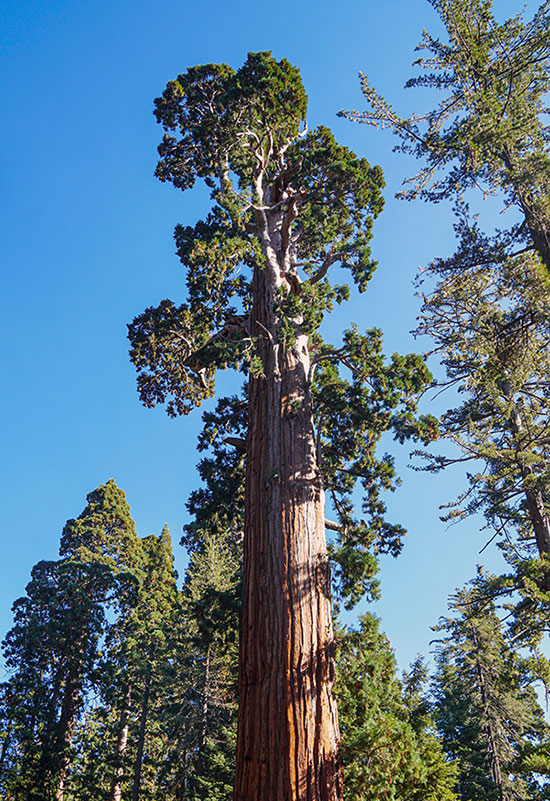
We need to explore and rediscover old ideas and ways of organising resistance, and build new spaces that can survive the present-future destruction and madness. The idea is also built on and inspired by the botanical walks – Herbationes Upsalienses – that Linnaeus did around Uppsala during the 18th century, read more here: The Linnaeus Trails.
We as human beings, educators, researchers and universities are failing in bringing about meaningful and radical (to the root causes) change – systemic changes of systems that are destroying human and more-than-human worlds.
The concept is simple: before the actual walking discussion you can watch a background-video or presentation or movie/audio that aims to provoke and inspire some initial thoughts, feeling on the topic being discussed. Then we gather, walk somewhere out of the city or to a certain destination; engage in dialogue, disagreement, discussion two and two; find a space for fika and further discussion (sometimes around a fire); then walk back and have a conversation with someone new.
September-October 2022
September 14 kl. 14.15-16.00: Mushroom and Human Worlds at the End of the World – Emerging life and living growing out of ruins
Where: The walk will start outside of CEMUS, Villavägen 16, see map here: https://bit.ly/336Zxma. We will walk to Stadsskogen, then along the winding paths in Stadsskogen to Valltjärn where we will light a fire. Bring your own fika, something to warm over the fire, mushrooms? A thermos with a hot drink might also be a good idea. And remember to wear warm clothes and warm shoes if weather is chilly, windy.
Registration: No registration, just be there a couple of minutes before we walk from Villavägen 16.
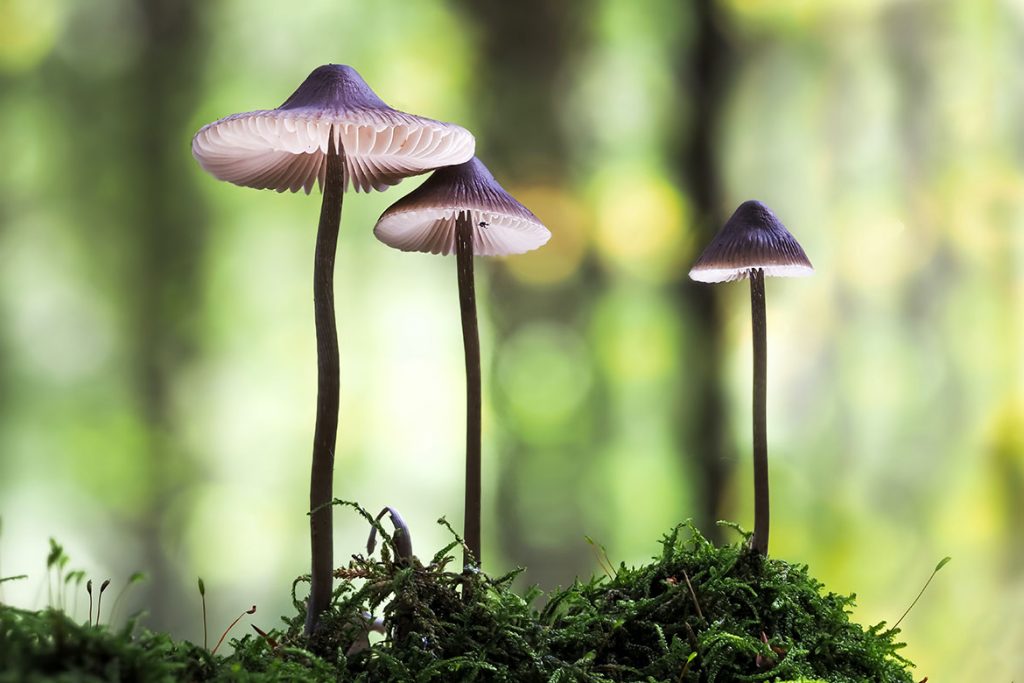
Photo: Dorothea Oldani
Questions and framing
Coming a week before the walk.
Background material
Background reading, watching is available here a week before the walk: coming/
October 12 kl. 15.15-17.00: Trees and Forests – Dwelling among giants, mystery and resistance
Registration: No registration, just be there a couple of minutes before we walk from Villavägen 16.
Questions and framing
Coming a week before the walk.
Background material
Background reading, watching is available here a week before the walk: coming/
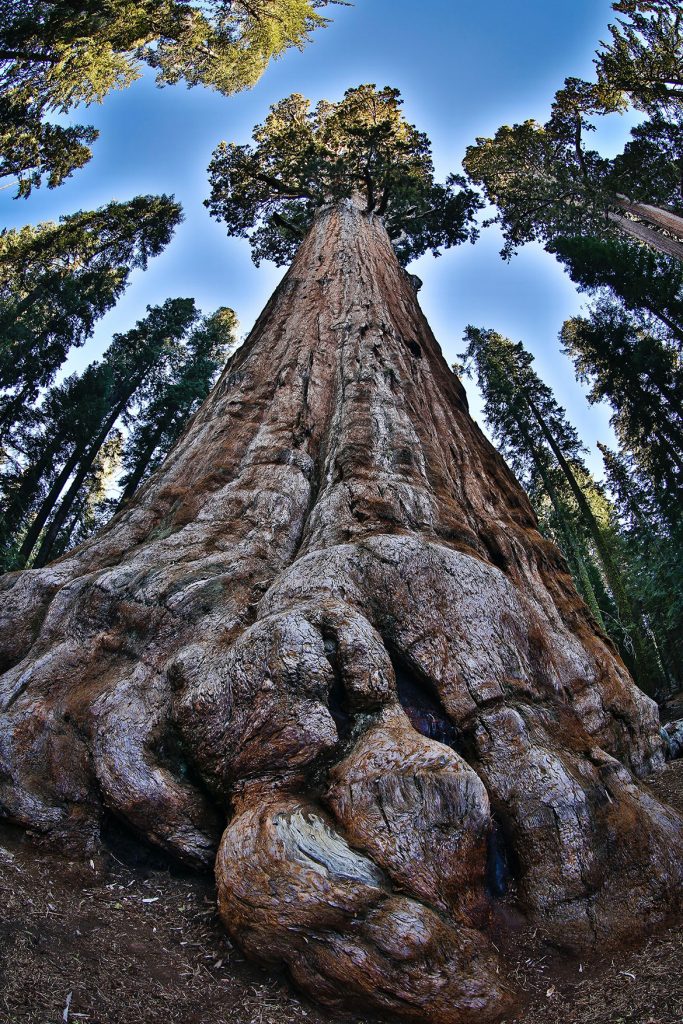
Photo: Stephen Leonardi
MOVED October 20 kl. 12.15-14.00: Ukrainian Poetry and Culture – Landscapes of love, loss and longing
Where: The walk will start outside of CEMUS, Villavägen 16, see map here: https://bit.ly/336Zxma. We will walk to Stadsskogen, then along the winding paths in Stadsskogen to Valltjärn where we will light a fire. Bring your own lunch or fika, maybe something to warm over the fire? A thermos with a hot drink might also be a good idea. And remember to wear warm clothes and warm shoes if weather is chilly, windy.
Registration: No registration, just be there a couple of minutes before we walk from Villavägen 16.
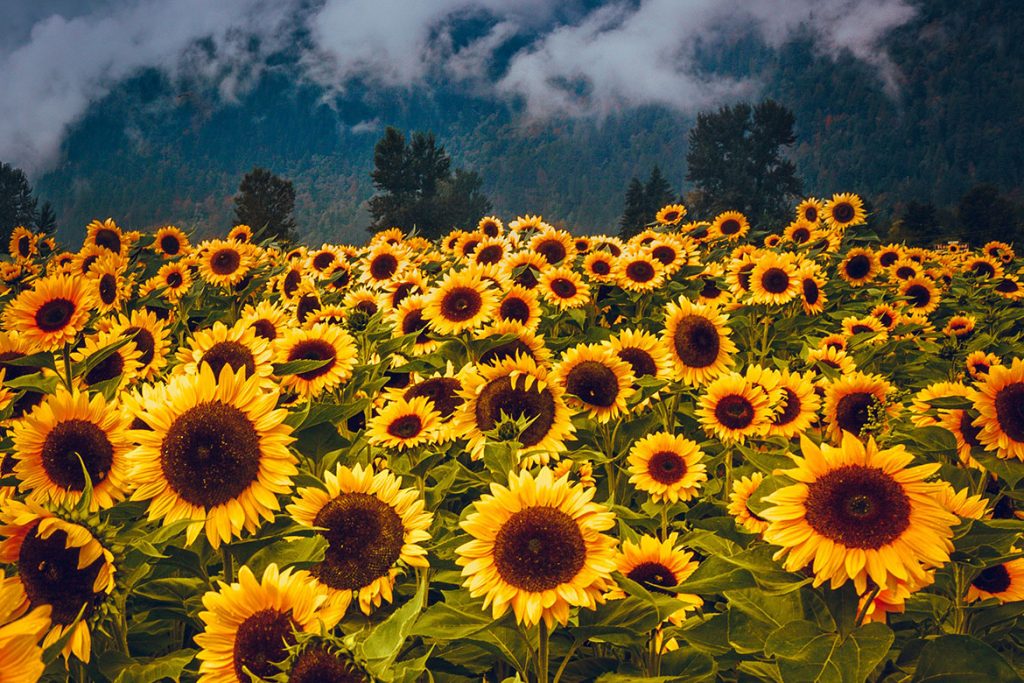
Photo: Angie
Questions and framing
Coming a week before the walk.
Background material
Background reading, watching is available here a week before the walk: coming/
April-May 2022
April 22 kl. 12.15-14.00: Post-Apocalyptic Food Systems – What to Eat at the End of the World?
Where: The walk will start outside of CEMUS, Villavägen 16, see map here: https://bit.ly/336Zxma. We will walk to Stadsskogen, then along the winding paths in Stadsskogen to Valltjärn where we will light a fire. Bring your own after disaster food or fika, maybe something to cook over the fire? A thermos with a hot drink might also be a good idea. And remember to wear warm clothes and warm shoes if weather is chilly, windy.
Registration: No registration, just be there a couple of minutes before we walk from Villavägen 16.
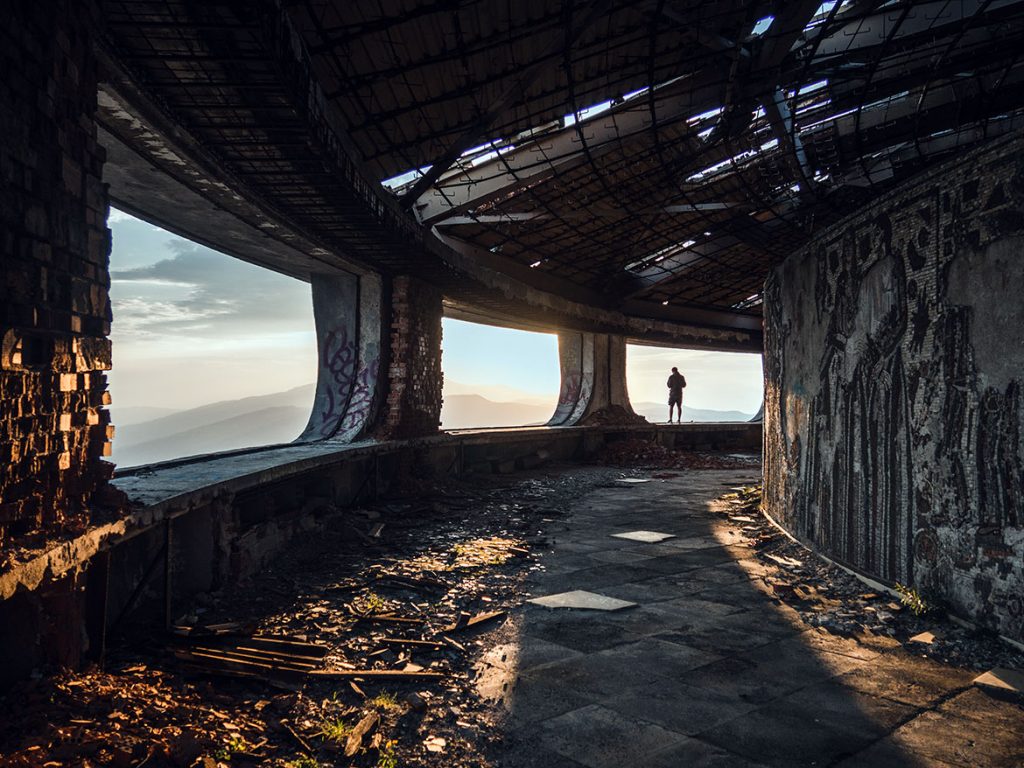
Questions and framing
The end of the world has been a reoccurring, manifold event over history, often with active perpetrators ending life and local worlds as part of a growing expansion and conquest. This active, conscious destruction continues to this day on an industrial scale and the end of the world is being lived daily by humans and more-than-humans all over the world. With the recent expanded Russian aggression and genocide in Ukraine this reality has moved much closer to Sweden. Energy security, food security and disrupted global distribution lines has once again entered the discussion around sustainability, climate and near-future scenarios. So have can societies cooperate internationally and plan nationally for food shortages and increasing prices? How can a robust, sustainable post-apocalyptic food systems be designed to feed people in this part of the world and at the same time trying to support others in even more need globally? How can we avoid getting paralyzed by the apparent ‘normality’ of everyday-life here in Uppsala? And what will we eat at the end of the world?
Background material
Background reading, watching is available here: http://www.cemus.uu.se/background-april-22-2022/
May 11 kl. 12.15-14.00: Sensing the World through Emanuel Swedenborgs Visionary Work – A City / Nature Walk in Uppsala
Registration: No registration, just be there a couple of minutes before we walk into Uppsala Cathedral.
Questions and framing
Coming.
Background material
Background reading, watching is coming.
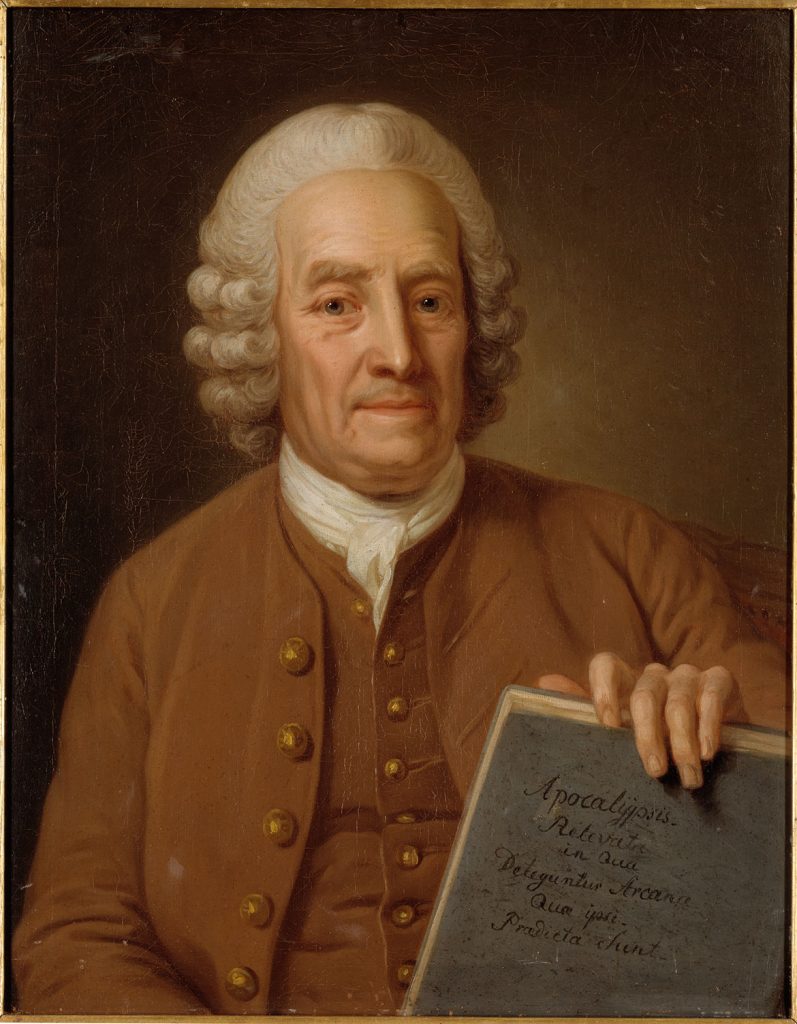
May 23 kl. 12.15-14.00: Escaping the Crucible and Re-Envisioning our Planetary Future with Aaron M. Ellison
Where: The walk will start outside of CEMUS, Villavägen 16, see map here: https://bit.ly/336Zxma. We will walk to Stadsskogen, then along the winding paths in Stadsskogen to Valltjärn where we will light a fire. Bring your own fika (thermos of coffee or tea and/or some food to share).
Registration: No registration, just be there a couple of minutes before we walk from Villavägen 16.
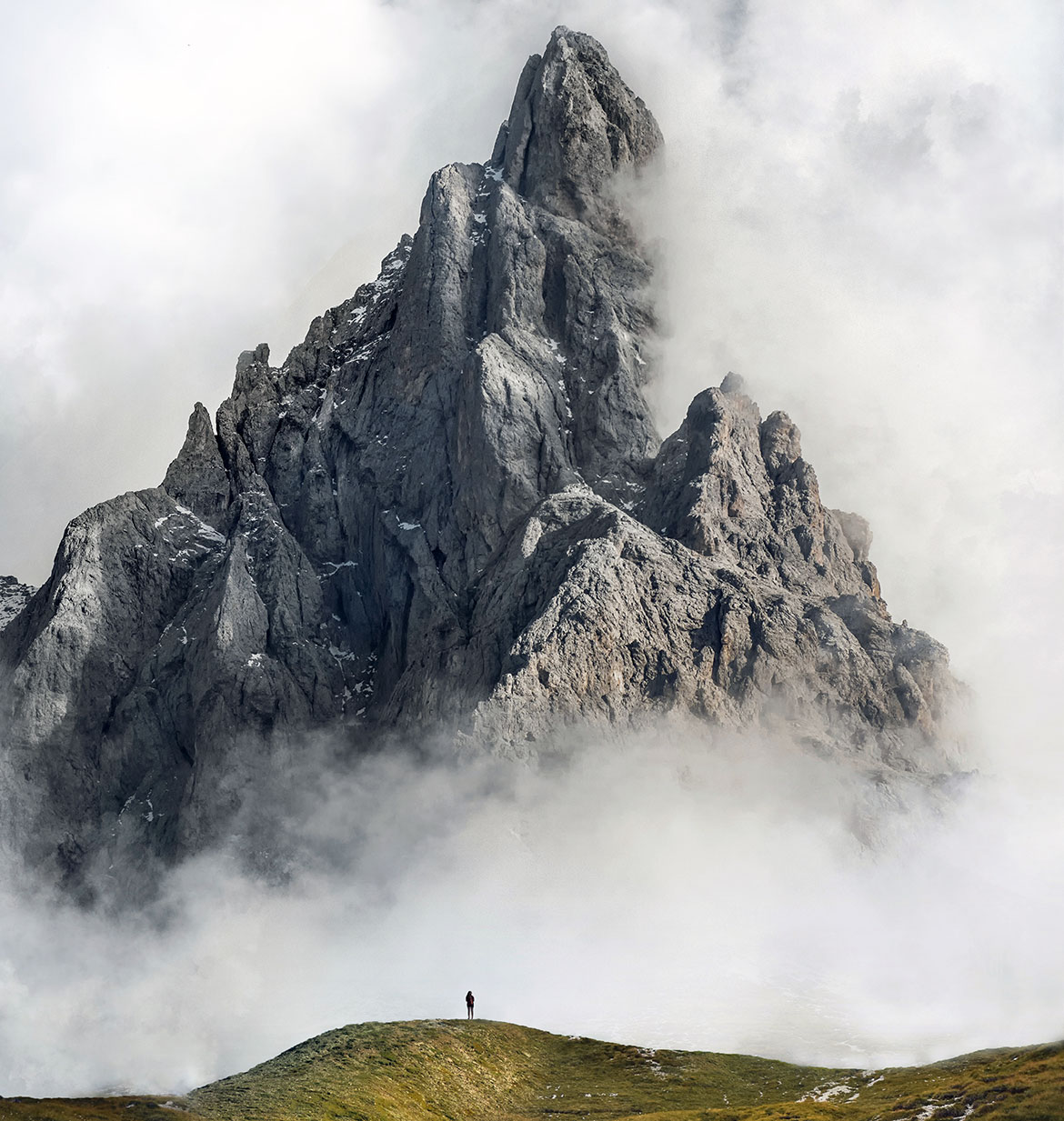
Questions and framing
We are living in a time with no precedent in the relatively brief, 200,000 years of human history. The planet is warming at a rate unseen in over 400 million years while the climate is becoming increasingly chaotic, biodiversity is declining precipitously, and novel zoonotic diseases are appearing with catastrophic consequences for human health and society. Is this planetary “state of emergency” an exception or is it the rule?
If it’s an exception, imagine that you have sufficient (super)powers to heed the alarm, stanch the bleeding, and return the Earth to a sustainable, healthy state. Today. Now. Immediately. What would you do, and what would the world be like in 5 years?
If it’s the rule, imagine that you can learn to treat instability as the norm and live effectively within a continuous state of emergency, now and into the future. What would the world look like if we were able to continuously meet change with change?
Background material
Background reading, watching is available here: www.cemus.uu.se/background-may-23-2022/
Aaron M. Ellison Natural Sciences Fellow, SCAS. Senior Research Fellow in Ecology (Emeritus), Harvard University
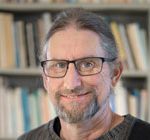 Aaron M. Ellison is the Senior Research Fellow in Ecology (Emeritus) at Harvard University and a photographer, sculptor, and writer. For over thirty years, his research has focused on studying the disintegration and reassembly of wetland and forested ecosystems following natural and anthropogenic disturbances; the evolutionary ecology of carnivorous plants; the response of plants and ants to global climate change; and the application of Bayesian statistical inference to ecological research and environmental decision-making. His photographs have been widely exhibited, published, and collected, and his sculptures have been exhibited at Harvard and North Carolina State University. Read more: http://www.swedishcollegium.se/subfolders/Fellows/Invited_Fellows/2021-22/ellison.html
Aaron M. Ellison is the Senior Research Fellow in Ecology (Emeritus) at Harvard University and a photographer, sculptor, and writer. For over thirty years, his research has focused on studying the disintegration and reassembly of wetland and forested ecosystems following natural and anthropogenic disturbances; the evolutionary ecology of carnivorous plants; the response of plants and ants to global climate change; and the application of Bayesian statistical inference to ecological research and environmental decision-making. His photographs have been widely exhibited, published, and collected, and his sculptures have been exhibited at Harvard and North Carolina State University. Read more: http://www.swedishcollegium.se/subfolders/Fellows/Invited_Fellows/2021-22/ellison.html
September-October 2021
September 29 kl. 12.15-14.00: Through the Pandemic Portal – Life, Love and Learning
Where: The walk will start outside of CEMUS, Villavägen 16, see map here: https://bit.ly/336Zxma. We will walk to Stadsskogen, then along the winding paths in Stadsskogen to Valltjärn where we will light a fire. Bring your own fika (thermos of coffee or tea and/or some food to share). And remember to wear warm clothes and warm shoes.
Registration: No registration needed, just be there a couple of minutes before we start.

Questions and framing
The pandemic is in no way over or behind us. An epidemic is local, a pandemic global, and people all over the world is still suffering from the direct and indirect effects from the virus. And the world will not be the same as it once was, as time relentlessly moves us and the planet forward. There is no normal to go back to or reset button to press. With all of this in mind and heart, here in Uppsala and Sweden restrictions and recommendations are lifted September 29, 2021. Students, coordinators and teachers are already back at campus and we can return to in person interactions, to a more human community and leave the black Zoom-boxes at home. We are passing through the pandemic portal, moving forward to continue the fight for a better world, for a habitable, beautiful world, for humans and more-than-humans.
What has the pandemic year and a half meant for you? What have you learned, known, felt and been moved by? How has life, love and learning changed, evolved though isolation and coming out of isolation? And how can we create a more equal and sane world, and support people still suffering from the pandemic?
Background material
Background reading, watching is now available here: http://www.cemus.uu.se/background-sep-29-2021/
October 13 kl. 12.15-14.00: Conspirituality – Language, Myth and Community
Where: The walk will start outside of CEMUS, Villavägen 16, see map here: https://bit.ly/336Zxma. We will walk to Stadsskogen, then along the winding paths in Stadsskogen to Valltjärn where we will light a fire. Bring your own fika (thermos of coffee or tea and/or some food to share). And remember to wear warm clothes and warm shoes.
Registration: No registration needed, just be there a couple of minutes before we start.
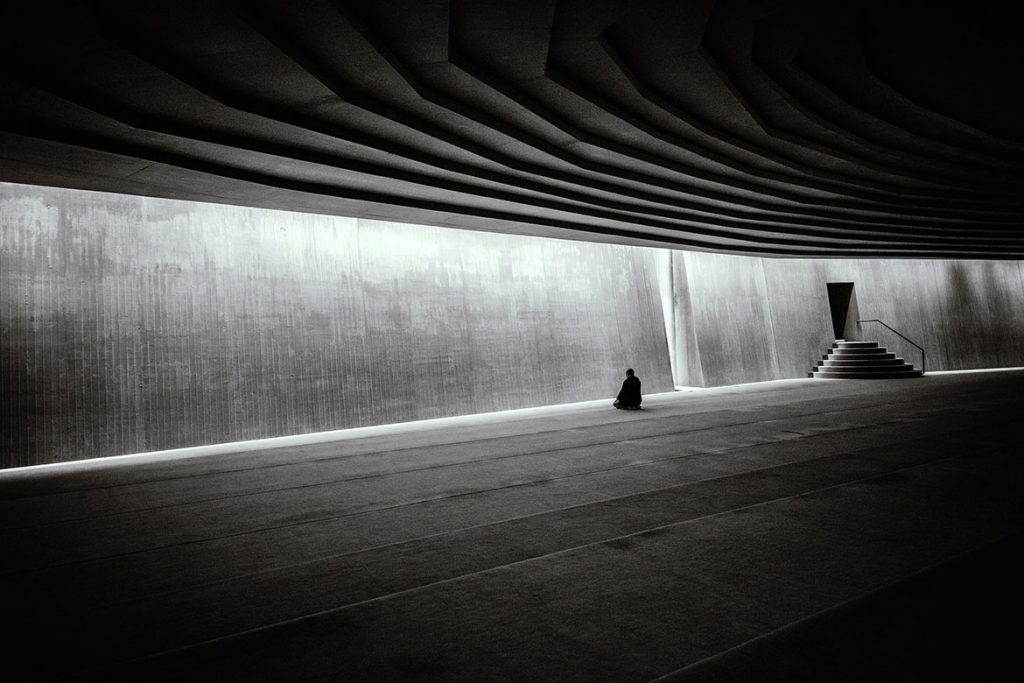
Questions and framing
How did mostly peaceful, open-minded and idealistic movements and spiritual groups (new age, yoga, wellness, vegan, alternative medicine, western adaptations of eastern philosophy and religion), traditionally close to environmentalism and left-leaning politics, become enchanted with and entrenched in a world of conspiracies? Can there still be room for mystery and myth in a world of deadly and violent conspirituality? How can language trap us in destructive relationships and communities? And how can language free us from those binds? And how can we support and build healthy spiritual practices, relationships and communities that grounds us in the human and more-than-humans worlds around us?
Background material
Background reading, watching is now available here: http://www.cemus.uu.se/background-oct-13-2021/
October 27 kl. 12.15-14.00: Climate Walks – One Hour and Forty Five Minutes to Glasgow (Pilgrim’s Walk for Future)
Where: The walk will start outside of CEMUS, Villavägen 16, see map here: https://bit.ly/336Zxma. We will walk to Stadsskogen, then along the winding paths in Stadsskogen to Valltjärn where we will light a fire. Bring your own fika (thermos of coffee or tea and/or some food to share). And remember to wear warm clothes and warm shoes.
Registration: No registration needed, just be there a couple of minutes before we start.
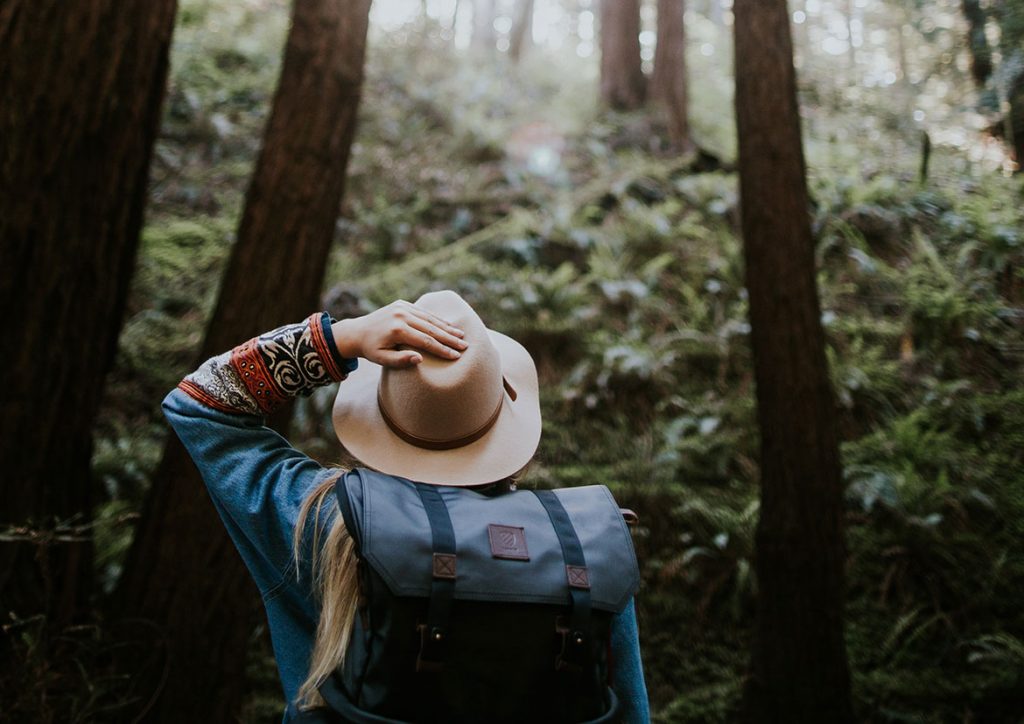
Questions and framing
During this walk we will look ahead to the COP26 climate meeting in Glasgow October 31 – November 12, 2021, and reflect on the deeper, underlying currents in how we think, feel and talk about climate. The walk is also added to the map connected to the Pilgrim’s Walk for Future that started July 19 in Vadstena and will arrive in Glasgow October 29. So join us for a much shorter one hour and forty five minute conversation and walk to Glasgow in our minds!
Background material
Background reading, watching is now available here: http://www.cemus.uu.se/background-oct-27-2021/
March-May 2021
March 19 kl. 11.15-13.00: Stories of Uppsala: The Ecology and Mythology of Climate Change
A ‘storying wander’ to Gamla Uppsala with Isak Stoddard, PhD Researcher Climate Change Leadership, Natural Resources and Sustainable Development, Department of Earth Sciences, Uppsala University.
Where: We meet at Eddaspången at 11.15. See map here: https://link.mazemap.com/db8P5Cma. The walk to Gamla Uppsala is about 4,5 km. The event will end at the Kings’ mounds in Gamla Uppsala around 13.00. Organized according to Covid-19 recommendations at Uppsala University.
Registration: To take part in the walk you need to register here: https://forms.gle/swPCNS7D1MZ2qbrp9 There limited spots available, so please register in time.
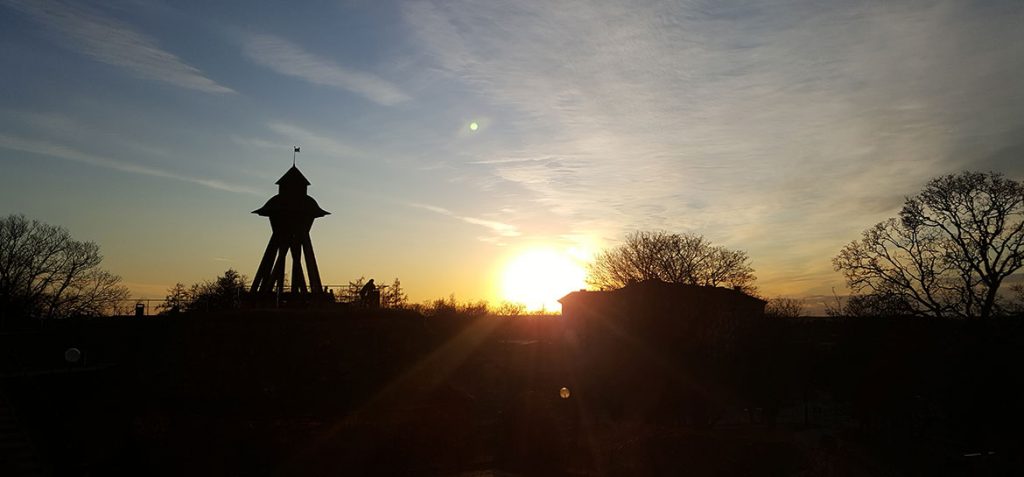
Questions and framing
Discussions around climate change tend to be accompanied by numbers, probabilities and limits. From the temperature thresholds of 1.5C and 2C to debates about the size of the remaining global carbon budget. From distant political targets for reaching net-zero emissions to debates about safe levels of greenhouse gas concentration in the atmosphere.
Despite more than 3 decades of international negotiations, increasingly dire warnings informed by science, and a wealth and diversity of “climate action” – much remains the same and emissions continue to accumulate in the atmosphere.
What if completely different entry-points are needed to be able to respond more meaningfully to the social-ecological predicament we find ourselves in? What role could a more direct engagement with particular places have for our thinking about the past, present and future?
In this explorative walk through Uppsala we will also be travelling through time, ending up in Gamla Uppsala, imagining both a past and possible future when this place had (or might again have) a closer connection to the water-body of Mälaren. As we walk through the rolling landscape, we will work with stories of Uppsala – rooted in Norse mythology, folklore, local history or speculative fiction.
We will bring a few stories with us that you can work with, but if you have a story of your own that you are working on, or would like to share, please bring it along!
When we arrive at the Kings mounds we will gather around for some storytelling (in Swedish, English or other language of choice) as way to round off the walk.
Background material
The framing and format of the walk is inspired by a series of walks (or ‘storying wanders’) in the Norwegian mountains exploring the role that storytelling, walking and oral culture can have in (re)building relationships with the history, ecology and mythology of place. Here a brief account of one such walk: https://wildethics.org/projects/projects-conspirings/.
MOVED TO THE AUTUMN 2021 – DATE AND TIME TO BE DECIDED
Through the Pandemic Portal – Life, Love and Learning
Where: The walk will start outside of CEMUS, Villavägen 16, see map here: https://bit.ly/336Zxma. We will walk to Stadsskogen, then along the winding paths in Stadsskogen to Valltjärn where we will light a fire. Bring your own fika (thermos of coffee or tea and/or some food to share). And remember to wear warm clothes and warm shoes. Organized according to Covid-19 recommendations at Uppsala University.
Registration: To take part in the walk you need to register here: https://forms.gle/MpbeBfBAKCEByxPq7 There limited spots available, so please register in time.
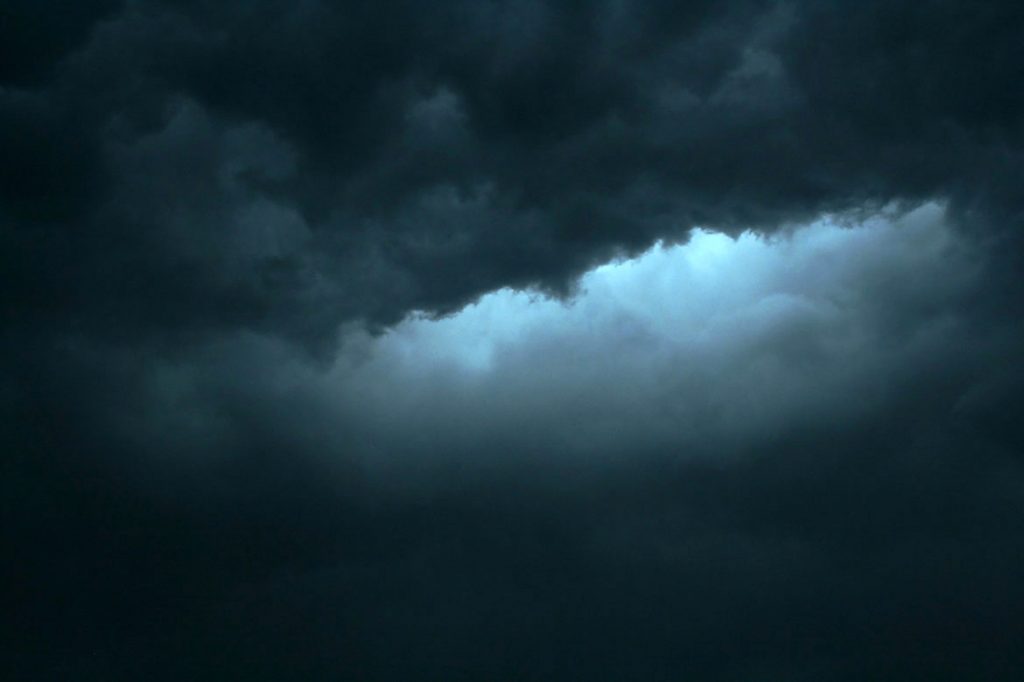
Photo: Terri Heisele
Questions and framing
COMING
Background material
COMING
CANCELLED: May 6 kl. 11.15-13.00: Climate Time / Human Time – Being a Good Ancestor and Seeing the Future in the Now
Where: The walk will start outside of CEMUS, Villavägen 16 at 11.15 (be there a couple of minutes before 11.15), see map here: https://bit.ly/336Zxma. We will walk through Stadsskogen into Håga Valley and back. We will find a place to sit down for fika, so bring your own fika (thermos of coffee or tea and/or some food to share). Organized according to Covid-19 recommendations at Uppsala University.
Registration: To take part in the walk you need to register here: https://forms.gle/kZSUm2pEDNa5X94Y8 There limited spots available, so please register in time.
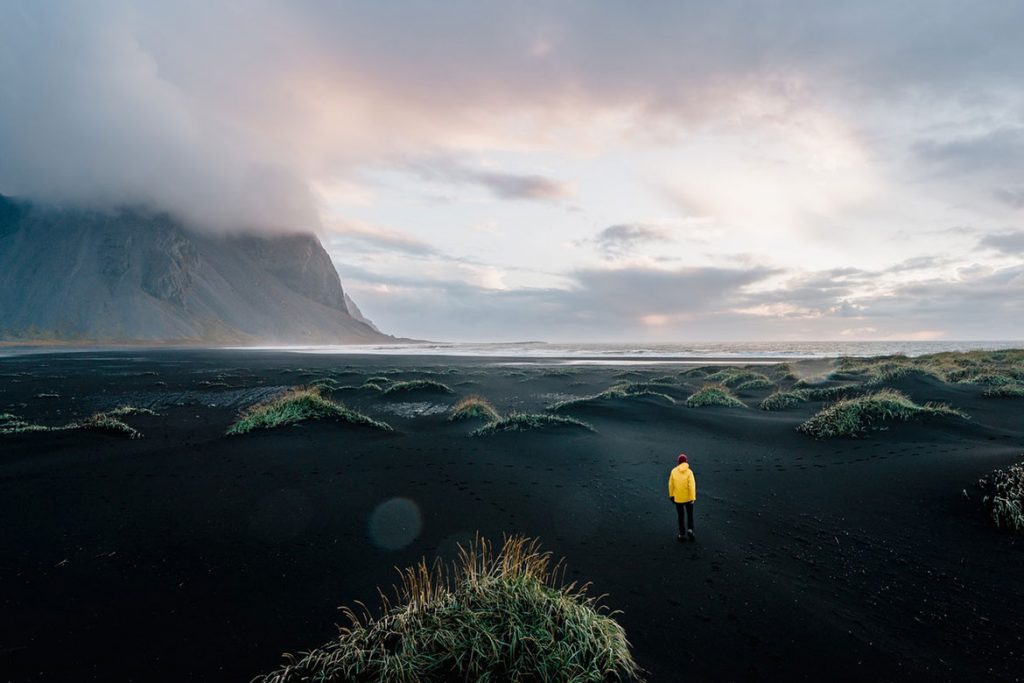
Photo: Simon Migaj
Questions and framing
COMING
Background material
COMING
CANCELLED: May 26 kl. 19.15-22.00: Stories around the Fire – A Mystery Mapping, Find Your Own Way Adventure Walk
Where: Outside Uppsala, you receive a letter with instructions, starting point and maps. Organized according to Covid-19 recommendations at Uppsala University.
Registration: To take part in the walk you need to register here: https://forms.gle/nupcppQ1bH3YZy5N7 There limited spots available, so please register in time.
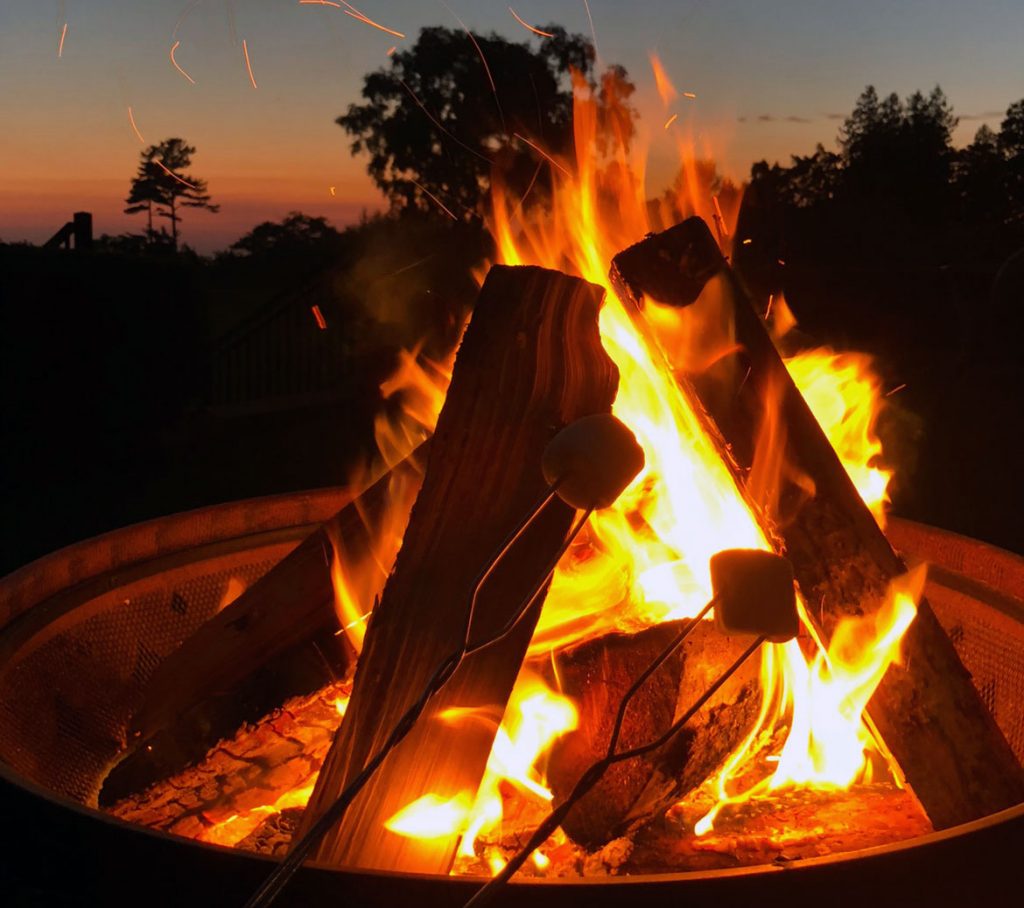
Photo: Greg Gulik
Questions and framing
COMING
Background material
COMING
September-October 2020
September 24 kl. 09.00-11.00: A Language Older Than Words – How the world speaks and ways of listening
Where: Individual, self-organized walk online via Zoom or outside (max 50 people), starting in parking lot outside of CEMUS, Geocentrum, Villavägen 16, see map here: https://bit.ly/336Zxma
Book a ticket: To participate outside you have to book a ticket so we don’t exceed max 50 people, fill out the form here: https://forms.gle/gy2VvkkLqDqd6ToH6
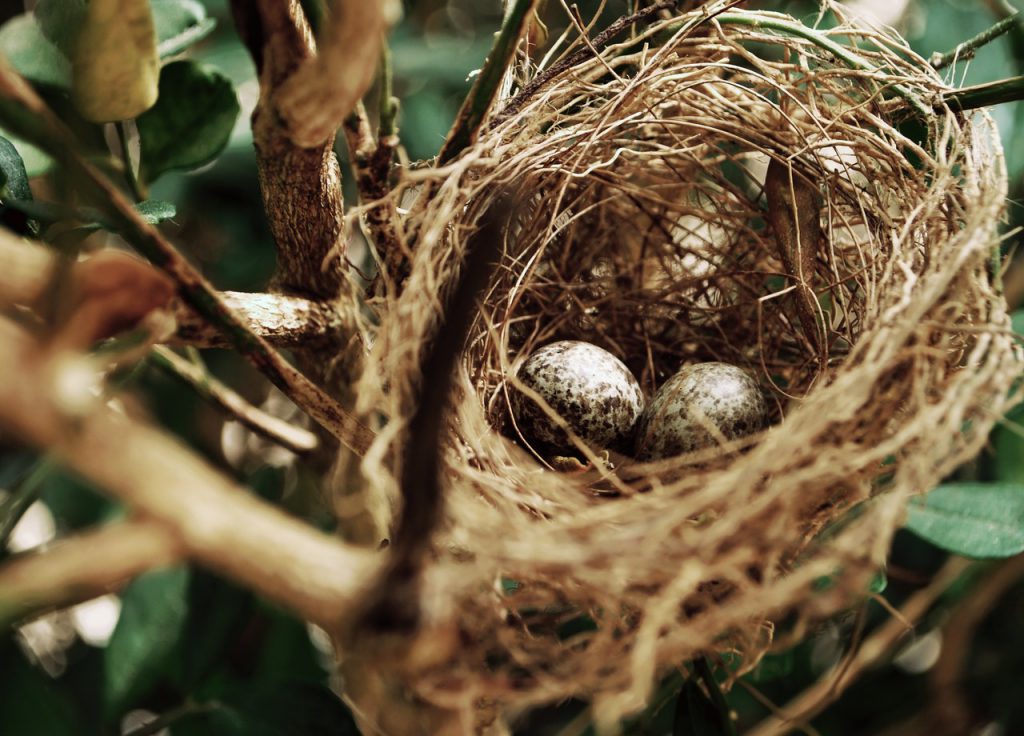
Tilt Shift Photo of Two White Bird Eggs on a Nest, Divisópolis, Brazil, Photo: Mauriciooliveira109
Questions and framing
Building on activist and writer Derrick Jensen’s extraordinary books “A Language Older Than Words” first published in 2000, and “The Myth of Human Supremacy” published in 2016, we step into conversations about and with an animated, communicating, living world. How does human, more-than-human animals and plants communicate and share experiences and interact in the natural community? How can we open up new ways of listening and communicating with the world around us? What stories and messages do the trees, bushes, places, animals in Stadsskogen want to share with us? What do we want to share and tell the world being destroyed around us?
Where?
The walk will start outside of CEMUS, Villavägen 16 at 09.00 (be there a couple of minutes before 09.00). We will walk to Stadsskogen, then along the winding paths in Stadsskogen to Valltjärn where we will light a fire. Bring your own fika (thermos of coffee or tea and/or some food to share). And remember to wear warm clothes and warm shoes.
Background-video/presentation and starting points
Background reading, watching is now available here: http://www.cemus.uu.se/background-sep-24-2020/
October 8 kl. 09.00-11.00: Troubling Education – How anti-oppressive pedagogy and courses can change the world
Where: Individual, self-organized walk online via Zoom or outside (max 50 people), starting in parking lot outside of CEMUS, Geocentrum, Villavägen 16, see map here: https://bit.ly/336Zxma
Book a ticket: To participate outside you have to book a ticket so we don’t exceed max 50 people, fill out the form here: https://forms.gle/vYDsuHhiKpYS7p17A
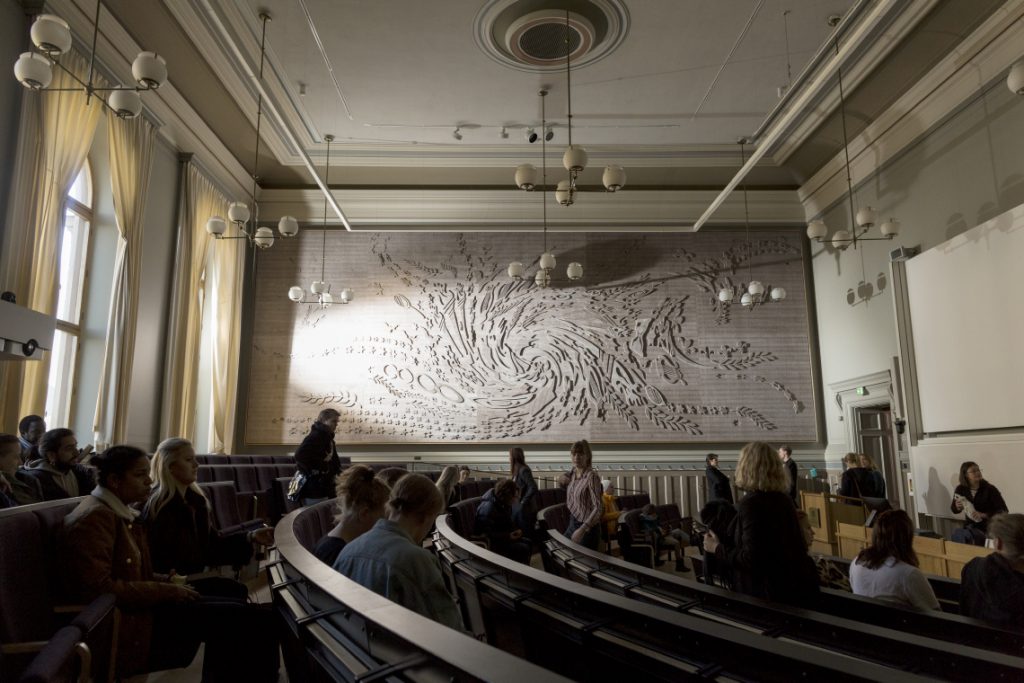
Den nya konsten i universitetshuset, Åsa Thörnlund, Photo: Mikael Wallerstedt
Questions and framing
What is a troubling and anti-oppressive education? How can we break free from our own prejudices and skewed understandings of what is wrong in the world when working with education that truly enables sustainability and justice? How could the relationship between the learners and the persons facilitating the learning be transformed into a collaborative partnership that enables openness, creativity and independence? How could we develop new ways of leading the educational design and learning process that is anti-oppressive? Why do we believe and know the things we believe, know about education, learning and ourselves? From where does the ideas and perceptions about a good educational practice come from? And how can we change the world through education?
Where?
The walk will start outside of CEMUS, Villavägen 16 at 09.00 (be there a couple of minutes before 09.00). We will walk to Stadsskogen, then along the winding paths in Stadsskogen to Valltjärn where we will light a fire. Bring your own fika (thermos of coffee or tea and/or some food to share). And remember to wear warm clothes and warm shoes.
Background-video/presentation and starting points
Background reading, watching is now available here: http://www.cemus.uu.se/background-oct-8-2020/
October 23 kl. 09.00-11.00: Resisting Fascism and Reimagening Democracy – How freedom matters for sustainability, climate and justice
Where: Individual, self-organized walk online via Zoom or outside (max 50 people), starting in parking lot outside of CEMUS, Geocentrum, Villavägen 16, see map here: https://bit.ly/336Zxma
Book a ticket: To participate outside you have to book a ticket so we don’t exceed max 50 people, fill out the form here: https://forms.gle/dfWZmbfFDmCoW4n9A

Omaha Beach, June 6, 1944. By Robert F. Sargent
Questions and framing
What does resistance mean in 2020? What does democratic decision-making and processes mean in today’s world? What strategies can we use to resist fascism up close and far away? How can democracy be protected and reimagined to safeguard planet and people? How can international solidarity between wide range of peoples, organizations and societal institutions be built? Why is freedom key in the work for sustainability, climate stability and justice? And why will any sustainability and climate work fail in an authoritarian world?
Where?
The walk will start outside of CEMUS, Villavägen 16 at 09.00 (be there a couple of minutes before 09.00). We will walk to Stadsskogen, then along the winding paths in Stadsskogen to Valltjärn where we will light a fire. Bring your own fika (thermos of coffee or tea and/or some food to share). And remember to wear warm clothes and warm shoes.
Background-video/presentation and starting points
Background reading, watching is now available here: http://www.cemus.uu.se/background-oct-23-2020/
September-December 2019
November 28 kl. 09.15-12.00: 21st Century Cave-Painting: On Art, Imagination, Moving Darkness, Moving Light
When: Thursday November 28 at 09.15-12.00
Where: Starting outside of CEMUS Library, Villavägen 16
Register here: https://goo.gl/forms/W9guH6a3Yw7sHxdb2
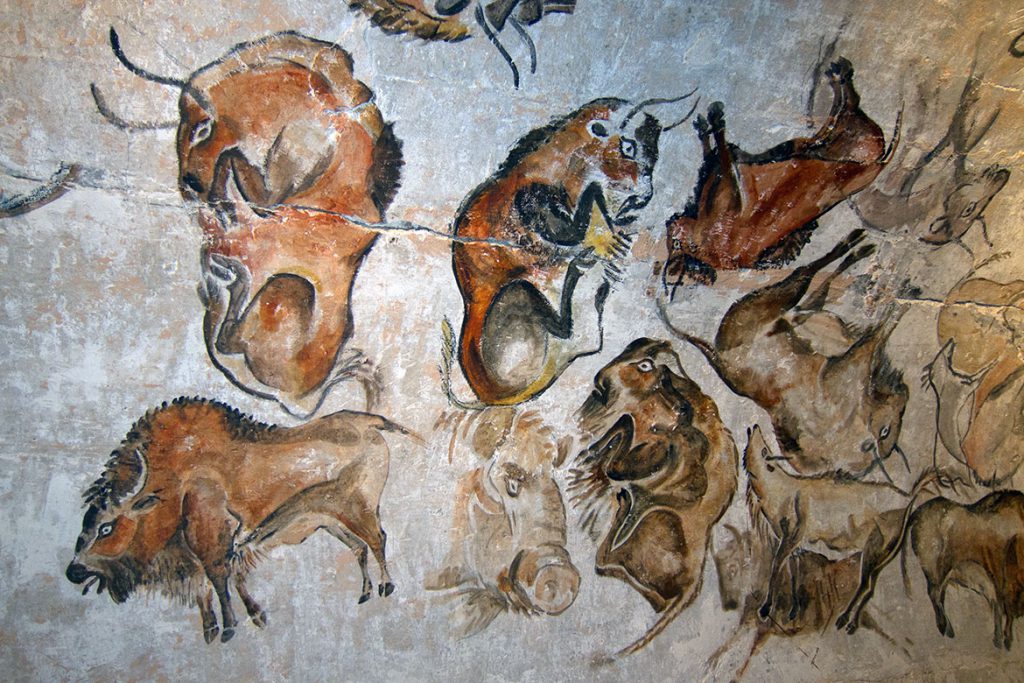
Paleolithic cave painting of bisons (replica) from the Altamira cave, Cantabria, Spain, painted c. 20,000 years ago (Solutrean). Photo by: Thom Quine. CC BY-SA 2.0
Questions and framing
If we submerge ourselves underground into a world of shadows and flickering lights what will we sense and see? What will make it/her/him-self seen and sensed? In these times of death, destruction, love and fighting ours and others lives, what moves and stirs us into action? What is significant in a time that devalues life? What do we want make eternal on ancient rock walls? What stories do we want to send into the future beyond our own human lives? How can art, imagination, stories radically change us, society and the world?
Where?
The walk will start outside of CEMUS, Villavägen 16 at 09.15 (be there a couple of minutes before 09.15). We will walk to Stadsskogen, then along the winding paths in Stadsskogen to Valltjärn where we will light a fire and cave-paint on an actual rock wall. Bring your own fika (thermos of coffee or tea and/or some food to share). And remember to wear warm clothes and warm shoes that can withstand some painting.
Background-video/presentation and starting points
Background reading, watching is now available here: www.cemus.uu.se/background-nov-28-2019
Previous walks
October 24 kl. 09.15-12.00: Reimagining Education – Learning from Keri Facer, Tim Ingold, Derrick Jensen and Bruno Latour
In collaboration with the course Reimagining Education – Learning, Knowing and Doing in a Changing World and the Course Coordinator Series // Amanuenskollegium at CEMUS.
When: Thursday October 24 at 09.15-12.00
Where: Starting outside of CEMUS Library, Villavägen 16
Register here: https://goo.gl/forms/W9guH6a3Yw7sHxdb2
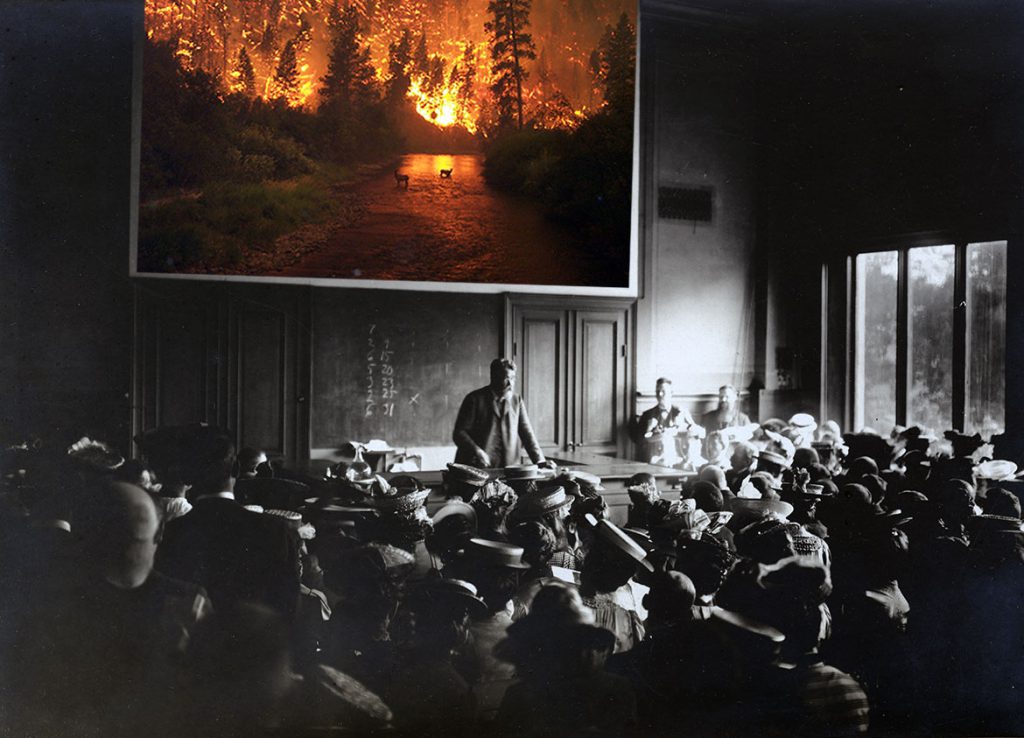
Questions and framing
During September and October 2019 those of us living, studying and working in Uppsala and Stockholm have had the pleasure of listening to and learning from some of the greatest minds and hearts in the broad and messy field of sustainability, education, anthropology and philosophy: Keri Facer, Tim Ingold, Derrick Jensen and Bruno Latour. All of them have had open lectures, performances, sessions that connect with some of the most important and difficult questions. This Re-emergence/emergency walk builds on those events and the questions they have raised. If you have missed some or all of the events, you have them (or similar talks) available in the background page linked below.
Where?
The walk will start outside of CEMUS, Villavägen 16 at 09.15 (be there a couple of minutes before 09.15). We will walk to Stadsskogen, then along the winding paths in Stadsskogen to Valltjärn where we will light a fire. Bring your own fika (thermos of coffee or tea and/or some food to share). And remember to wear warm clothes and warm shoes.
Background-video/presentation and starting points
Background reading, watching is now available here: www.cemus.uu.se/background-oct-24-2019
September 26 kl. 09.15-12.00: Climate Strike – Climate Emergency – Climate Re-Emergence
In connection to the Global Climate Strike September 20-27 https://globalclimatestrike.net/
When: Thursday September 26 at 9.15-12.00
Where: Starting outside of CEMUS Library, Villavägen 16
Register here: https://goo.gl/forms/W9guH6a3Yw7sHxdb2
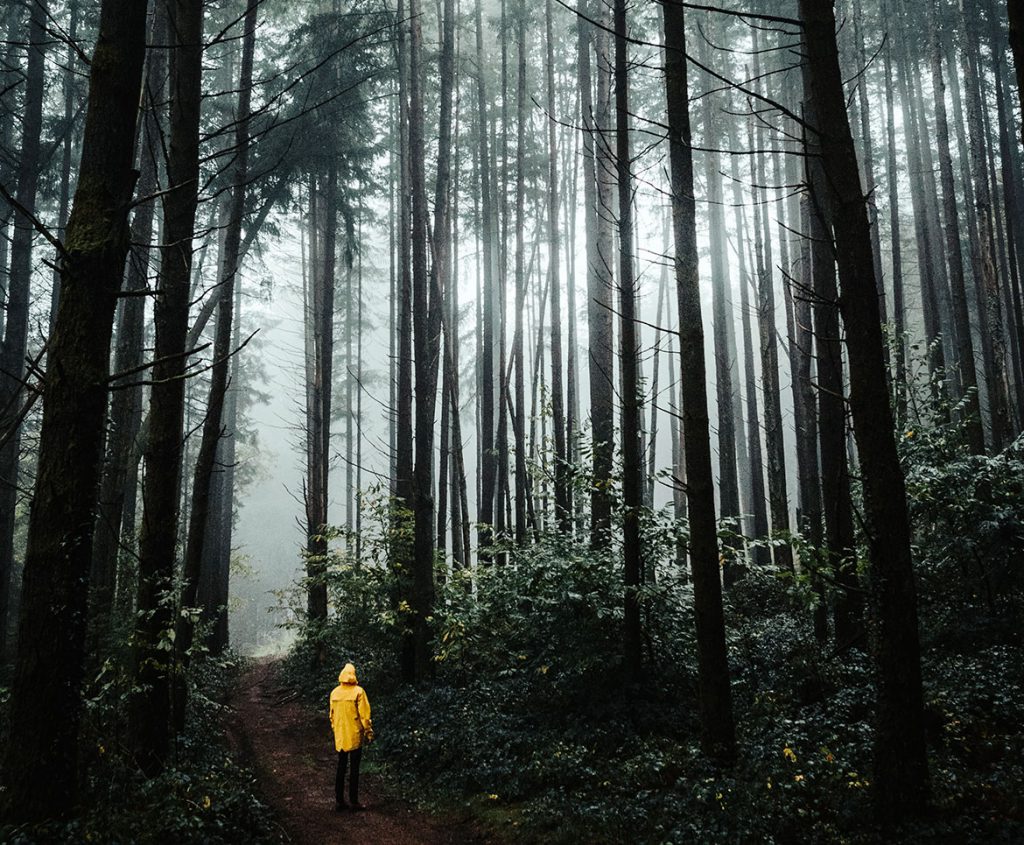
Questions and framing
How can strikes, general strikes and the climate strike create and open up change at different levels in society? How could adults support youth, and youth support adults? What are the consequences of a strike not called by and supported by the union? Can we and should we create new unions that will join in the fight against climate change and environmental destruction?
Where?
The walk will start outside of CEMUS, Villavägen 16 at 9.15 (be there a couple of minutes before 9.15). We will walk through Stadsskogen into Håga Valley and back. We will find a place to sit down for fika, so bring your own fika (thermos of coffee or tea and/or some food to share).
Background-video/presentation and starting points
Background reading, watching is now available here: http://www.cemus.uu.se/background-sep-26/
September 12 kl. 15.30-17.00: Spirituality, Sustainability and the Future of the Earth – Moving Mountains
Following the full day on the same theme organized by the Swedish Church, Centre for Religion and Society UU, Newman Institute and CEMUS, read more here: http://www.cemus.uu.se/sep-12-spirituality-sustainability-and-the-future-of-the-earth-moving-mountains/
When: Thursday September 12 at 15.30-17.00
Where: Starting outside of University Main Building (Universitetshuset), big main entrance facing the park
Register here: https://goo.gl/forms/W9guH6a3Yw7sHxdb2
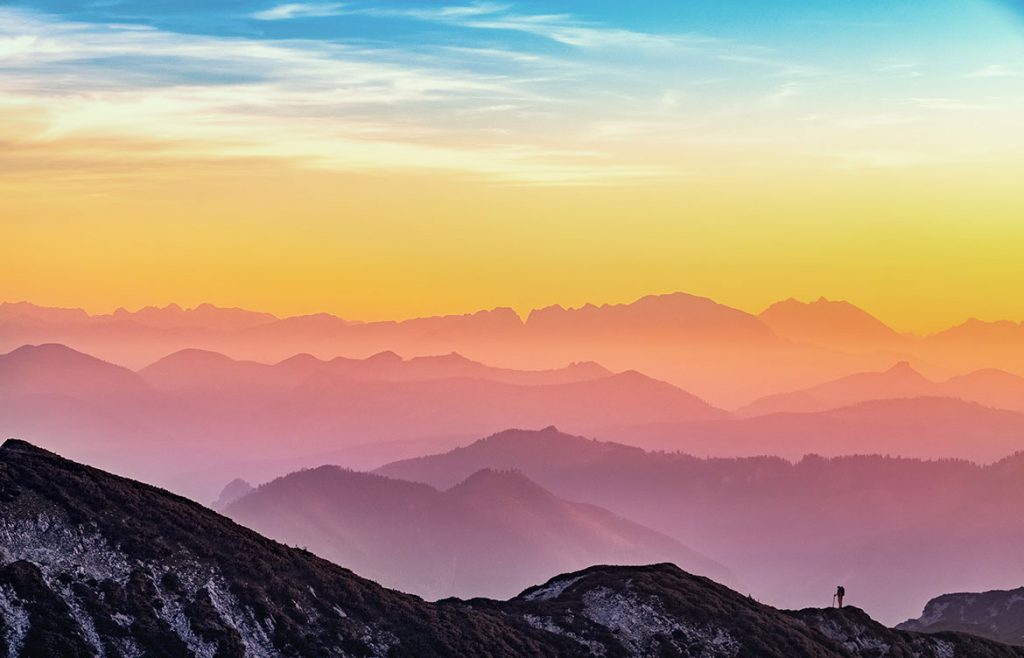
Questions and framing
Issues, thoughts, reflections and questions raised during the Spirituality, Sustainability and the Future of the Earth – Moving Mountains day starting at 9.15 (register via link).
Where?
The walk will start outside of the University Main Building (Universitetshuset), big main entrance facing the park, be there a couple of minutes before 15.30. We will walk through English Park (Carolinaparken), Botanical Garden and up to the castle and Gunillaklockan where we will wrap up the walk.
Background-video/presentation and starting points
Issues, thoughts, reflections and questions raised during the day, see above.
February-May 2019
May 9 kl. 13-16: Earth Rights, Nature’s Rights – Reframing Legal Protection of Nature
In conjunction with the Earth Rights Conference May 10-11 in Sigtuna.
When: Thursday May 9 at 13.15-16.00
Where: Starting outside of CEMUS Library, Villavägen 16
Register here: https://goo.gl/forms/W9guH6a3Yw7sHxdb2
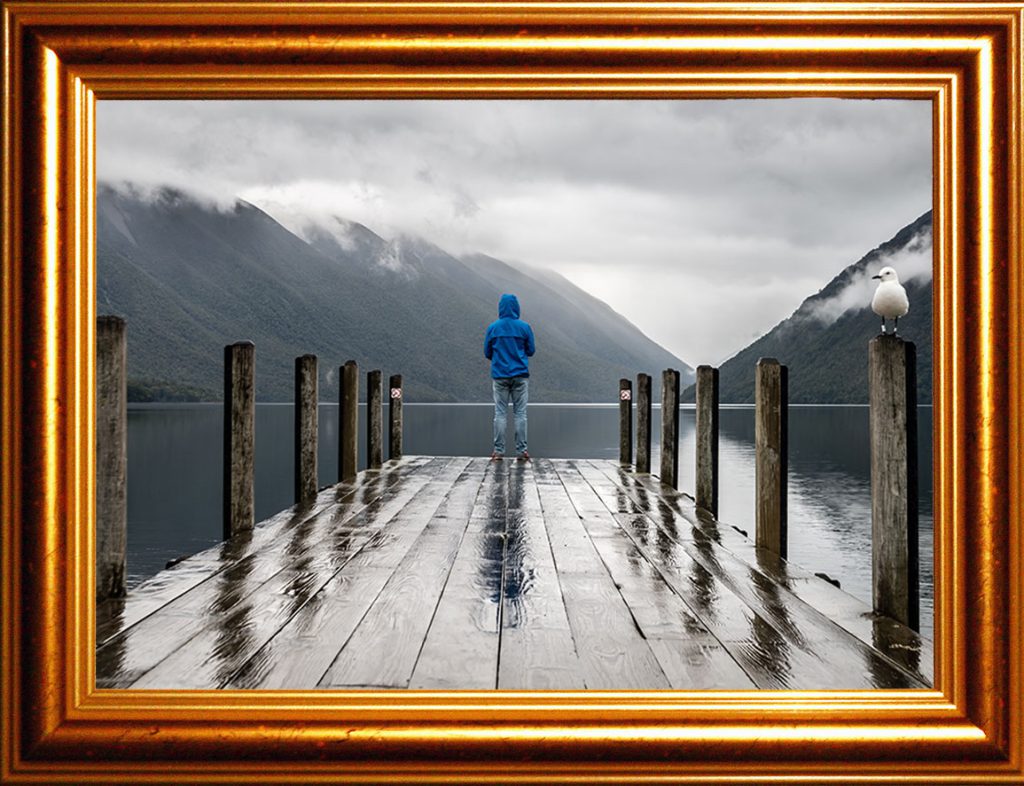
Questions and framing
The Earth Rights Conference asks the following main questions:
- What idea is powerful enough to heal the relationship between humans and nature?
- A space for dialogue and co-creation about the idea that nature, not just humans, have rights. Can this idea be the foundation for a new dimension of respect and harmony between humanity and the planet?
And the workshop organizers asks similar questions like:
- Can the Rights of Nature approach open up for a new perspective on ownership, as a special kind of relationship with the land, built on partnership and respect? Do we need to replace the term “ownership” with a new word?
- How would we treat our oceans and whales if we saw them as rights holders? How would our actions change if oceans and whales were granted legal rights? What can Indigenous legal traditions teach us about how to live in good relationships with the ocean and its inhabitants?
- How can indigenous people lead the way to a sustainable future for all, through rights of nature?
- I am Nature, I am Artificial – Am I Aware?
- How can we achieve transformation through our personal connections with Mother Nature?
We’ll explore these questions and the main question of the walk – what would a legal functioning framework that protects nature and people look like? What parts of nature do choose to protect first? How can a legal framework and the concept of natures rights be brought into the political debate and be made into law?
Where?
The walk will start outside of CEMUS, Villavägen 16 at 9.15 (be there a couple of minutes before 9.15). We will walk through Stadsskogen into Håga Valley and back. We will find a place to sit down for fika, so bring your own fika (thermos of coffee or tea and/or some food to share).
Background-video/presentation and starting points
Background reading, watching is now available here: http://www.cemus.uu.se/background-may-9/
April 11 kl. 9.15-12.00: Digital Detox – Seeing, Living and Being in the World Beyond Black Mirrors
 Theme, questions and framing by Ewa Livmar.
Theme, questions and framing by Ewa Livmar.
When: Thursday April 11 at 9.15-12.00
Where: Starting outside of CEMUS Library, Villavägen 16
Register here: https://goo.gl/forms/W9guH6a3Yw7sHxdb2
Questions and framing
How much time per day do you spend looking at a screen? When was the last time you completed your tasks and/or to-do lists on time without procrastinating? The digital world is a distraction that easily gets in the way of managing our time. Are we wasting too much time on something that doesn’t matter in the long run? The cognitive neuroscientist, Katarina Gospic talks about how parents screentime affect childrens language use, empathy and ability to bond with parents. She deals with the needs and functions of the human brain, and addresses how the brain is prone to fast feedback and fast rewards and how this is problematic if we want a diffrent result from our behaviour in the long run. Acting upon the impulses of fast reward are very strong and Gospic talks about how to find strategies for long term decisions. In her latest book Hjärnbalans she proposes that people should consider digital detox, to become aware of their actual use of digital devices and the effect on their lives, to be able to make more informed decisions rather than being hi-jacked by the allure of the digital world.
- What health related problems do we see in a digitally sped up society?
- What are we demanding in our work environments today in terms of efficiency, multitasking and quick email responses?
- In regards to climate change and the need for more sufficient approaches to societal change is digital detox something to consider?
Where?
The walk will start outside of CEMUS, Villavägen 16 at 9.15 (be there a couple of minutes before 9.15). We will walk through Stadsskogen into Håga Valley and back. We will find a place to sit down for fika, so bring your own fika (thermos of coffee or tea and/or some food to share).
Background-video/presentation and starting points
Background reading, watching is now available here: http://www.web.cemus.se/background-april-11/
March 6 kl. 13.00-15.15: Extinction, Ecology and Existence – on Climate Change and Biodiversity
 With Aaron Ellison, Senior Research Fellow in Ecology at, and Deputy Director of, the Harvard Forest.
With Aaron Ellison, Senior Research Fellow in Ecology at, and Deputy Director of, the Harvard Forest.
When: Wednesday March 6 at 13.00-15.15 [kl. 13.00 sharp – fika kl. 15.15 at CEMUS]
Where: Starting outside of CEMUS Library, Villavägen 16
Register here: https://goo.gl/forms/W9guH6a3Yw7sHxdb2
Questions and framing
Humans, animals big and small are now living through the sixth mass extinction event, the collapse of nature, climate breakdown, a industrial civilization geological scale event happening in a human time frame of a few generations. How can we individually-collectively defend, protect nature in a world where industrial activities and human built structures spread out over the surface? How can feelings of loss, defeat, hopelessness be transformed into meaningful, real-world actions that reverse current trends? How can we as co-learners, educators, researchers discuss these issues in a way that is both honest and empowering?
Where?
The walk will start outside of CEMUS, Villavägen 16 at 13.00 (be there a couple of minutes before KL. 13). We will walk to Stadsskogen, then along the winding paths in Stadsskogen to Valltjärn where we will light a fire. Bring your own fika (thermos of coffee or tea and/or some food to share). And remember to wear warm clothes and warm shoes.
Background-video/presentation and starting points
Background reading, watching is now available here: http://www.web.cemus.se/background-march-6/
February 14 kl. 9.15-11.30: Learning, Knowing and Acting in a Changing World
 When: Thursday February 14 at 9.15-11.30
When: Thursday February 14 at 9.15-11.30
Where: Starting outside of CEMUS Library, Villavägen 16
Register here: https://goo.gl/forms/W9guH6a3Yw7sHxdb2
In collaboration with the Erasmus+ project on Applied Ecopreneurship Methodologies.
Questions and framing
What skills, knowledge and perspectives are needed to in a real and effective way deal with climate change and other sustainability challenges? How can we organise university education in a different way to better prepare students for working and acting in a changing and unpredictable world? What experiences of doing this can we share with each other and how can we build networks that supports new initiatives?
Where?
The walk will start outside of CEMUS, Villavägen 16 at 9.15 (be there a couple of minutes before quarter past). We will walk to Stadsskogen, then along the winding paths in Stadsskogen to Valltjärn where we will light a fire. Bring your own fika (thermos of coffee or tea and/or some food to share). And remember to wear warm clothes and snow resistant shoes.
Background-video/presentation and starting points
Audio introduction and background reading, watching is now available here: http://www.web.cemus.se/background-feb-14/
November 2018
Nov 19 at 9.15-12.00: Reimagining education, research and the university
When: Monday November 19 at 9.15-12.00
Where: Starting in CEMUS Library, Villavägen 16
Register here: https://goo.gl/forms/3FQI0H83NBqkq3JF2
Questions and framing
How can education, research and the university as a societal actor become a driving force for good in the world and build real, long-lasting sustainability? Which existing and possible new initiatives and collaborations needs to be explored and supported at the university now? How can we build new alliances that changes and challenges established non-sustainable university structures and cultures? And how can we re-dream, re-imagine a completely different kind of education and research that supports and celebrates life on planet Earth, something new emerging out of the emergency?
 Where?
Where?
The walk will start from CEMUS Library, Villavägen 16 at 9.15 (be there a couple of minutes before quarter past). We will walk to Stadsskogen, then along the winding paths in Stadsskogen to Valltjärn where we will light a fire. Bring your own fika (thermos of coffee or tea and/or some food to share).
Background-video/presentation and starting points
The video can be viewed here (password: cemus2018): Re-emergence/emergency walks – video

